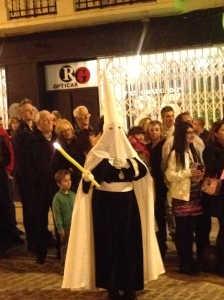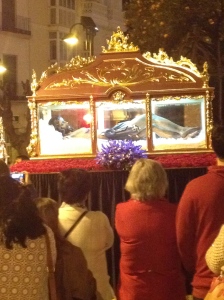Andalucian president Susana Diaz continues to try to govern alone after failing to secure a majority in last month’s regional election, in spite of winning the same number of seats as in 2012. Her Socialist party (PSOE) is eight seats short of what it needs to avoid having to negotiate with other parties to pass every piece of legislation.
Anti-austerity, anti-corruption party Podemos, which secured 15 seats, is hardly coalition material for a ruling party that is following an austerity agenda and has three former ministers suspected of involvement in a billion euro fraud case. And the other newcomer to Spanish politics – the right wing Ciudadanos (Citizens), which won nine seats – has also ruled out a formal alliance, even with the conservative Popular Party (PP), which came second but lost 17 seats.
The Spanish media continues to predict that Podemos could hold the balance of power after the general election in November. But given that the Andalucian vote, especially the collapse in the vote of PP (the party of national government), is seen as a strong gauge of the outcome, it is difficult to envisage what sort of coalition Podemos might be a part of.
Meanwhile, the breakdown of voting in Granada province, and particularly in Las Alpujarras, shines a light on the sides taken in our villages and towns during the Spanish civil war.
The people who work the land here do not consider themselves to be anything other than working class – it is uniquely Spanish anarchism. But the terrible experiences of the civil war are, for many people of the Alpujarras, still painfully recent. Here there are estimated to be as many as 25 mass graves containing the remains of Republican or anarchist villagers who tried to resist Franco’s armed rebels who came up to these mountains from the coast. Towns such as Torvizcon were repeatedly attacked and their inhabitants “disappeared”. Órgiva marked a frontline throughout the war and remains proudly anti-Franco.
With a few exceptions, such as the pristine spa town of Lanjarón which narrowly voted PP – perhaps as much because of the relative wealth of its inhabitants through tourism as that it was Nationalist during the war – this remains a staunchly socialist region. PSOE won the majority of Alpujarran municipalities, with Podemos coming second or third in many. And it is unsurprising that while the United Left (IU), which includes the Communist Party of Spain, lost seven seats in the Andalucian parliament, it had a relatively strong showing in many places here.
Take the tiny pueblo of Cañar, from where our internet signal is beamed. IU achieved 6.8 per cent of the vote – that’s eight people in a village with a population of just a couple of hundred. If only those eight could get their hands on that broadband transmitter…

